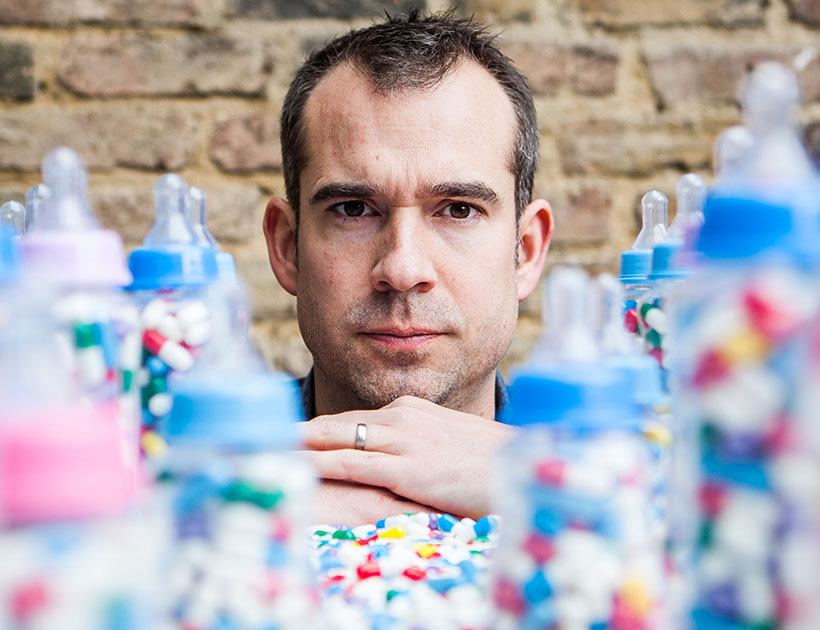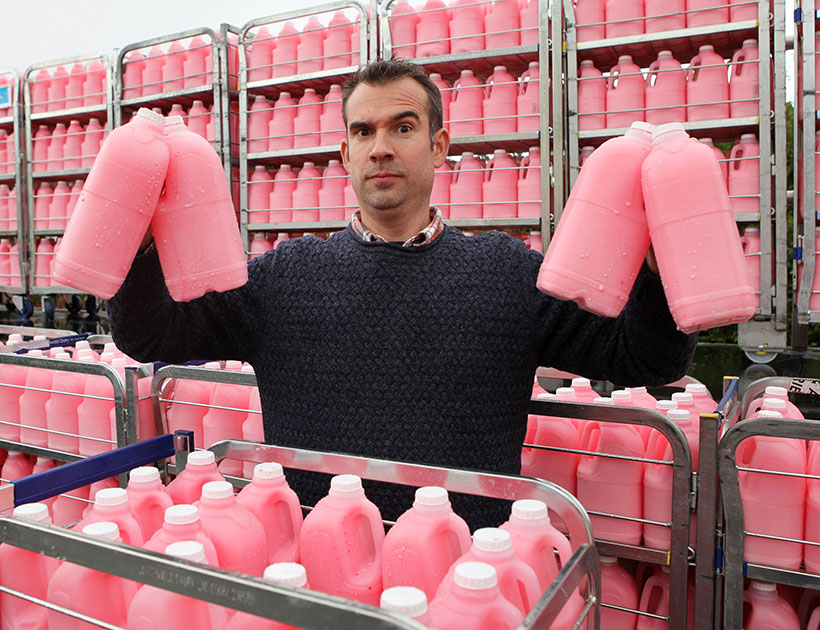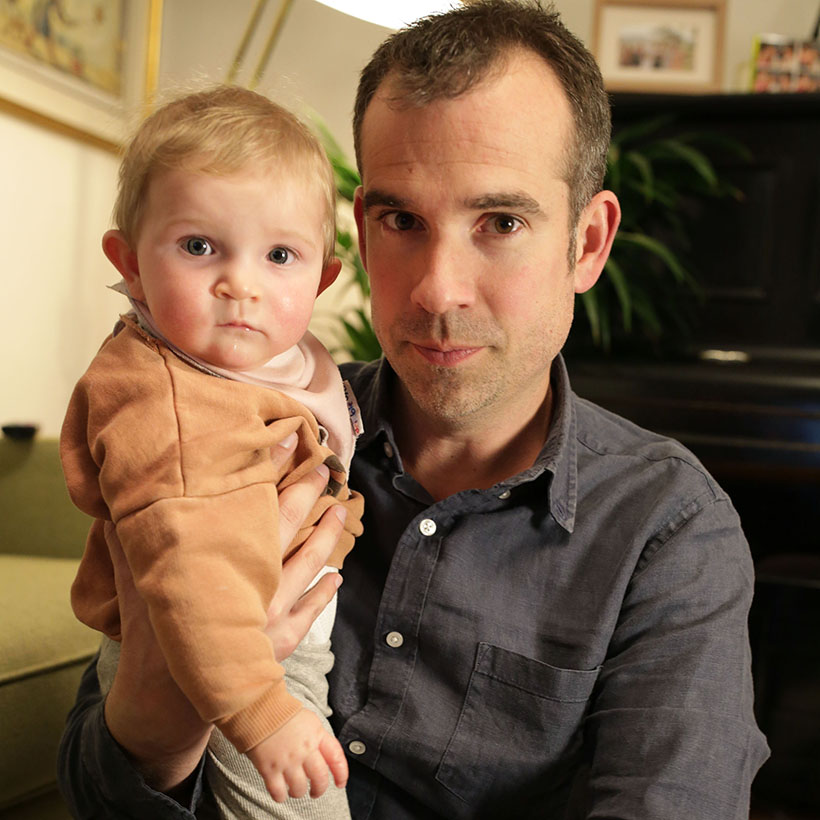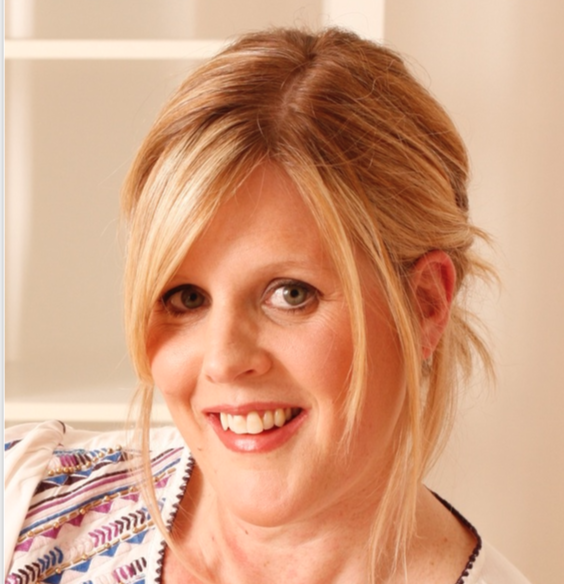BBC's Dr Chris van Tulleken asks, 'Why are we giving our children so many drugs?'

The latest updates, reviews and unmissable series to watch and more!
You are now subscribed
Your newsletter sign-up was successful
Want to add more newsletters?

ONCE A WEEK
What to Watch
Get all the latest TV news and movie reviews, streaming recommendations and exclusive interviews sent directly to your inbox each week in a newsletter put together by our experts just for you.

ONCE A WEEK
What to Watch Soapbox
Sign up to our new soap newsletter to get all the latest news, spoilers and gossip from the biggest US soaps sent straight to your inbox… so you never miss a moment of the drama!
In a two-part investigation, concerned Dr Chris van Tulleken asks why we are giving our children more than three times more medication than we did forty years ago....
Dr. Chris van Tulleken returns to our TV screens for a new series of the BAFTA-nominated The Doctor Who Gave Up Drugs.
Two years ago, Chris revealed that we are taking more prescription drugs than ever before. His original social experiment for BBC1 saw him work with a GP surgery to swap patients’ prescriptions for drug free alternatives.
Now he is on a new mission: Chris has worked out that we are giving British kids three times more medication than we were 40 years ago and as a new dad himself, he wants to find drug free alternatives which might be just as effective.
Over the course of a year, he tackles the shocking rise in teens taking anti-depressants; investigates why parents are buying so many over the counter meds when they may not be always necessary; and helps hyperactive children diagnosed with ADHD replace their drugs with meditation.
He also digs deeper into the forces driving the over- medication of British children and asks whether the drug industry itself could be playing a part.
Here Dr Chris, a parent to 10-month-old daughter, Lyra, tells What's On TV what his investigations found and what potential damage we could be doing our children...
The latest updates, reviews and unmissable series to watch and more!
Dr Chris van Tulleken's interview with What's On TV
What's On TV: Your programme two years ago, focused on adults but this is all about children isn’t it?
Dr Chris van Tulleken: "Yes, I’ve never had a response before like the one I had after the last series. I had literally thousands of emails from people asking, ‘How do I stop my drugs’. We see that there is a culture and it’s just as big with children. Prescriptions are what we do as doctors and what we expect as patients. We’re not programmed to be asking about side-effects and complications."
WOTV: Why is this subject so important to you?
CVT: "I realised that anyone who’s a parent, particularly of a young child, starts to become a customer of marketing companies. I’m a new dad myself, my daughter Lyra is ten months old. After a child is born you are so vulnerable, with raised anxiety levels and uncertainty and even as a doctor, I’m no different. I wanted to find out what the influence is of corporations on our children’s health."
WOTV: What is the crux of the matter?
CVT: " The programme is really about how we avoid those pitfalls as parents. The one thing we can do is, if we’re alive to the risks of the medication, if we’re alive to what the marketing machine is trying to do to us, then we can break the cycle and stop so many drugs and medications going into our children."
WOTV: In the programme you explain why you believe the marketing company of Calpol, a liquid paracetemol for children, manipulates parents’ anxieties...
CVT: "Yes. When it’s toys or shampoo I don’t really care about marketing people tinkering and manipulating me in that way, you kind of expect it, but Calpol is marketed as a healthy part of a normal childhood, the advert says it, “Let’s kids be kids”. The message it sends is that for every bruise, cough, cold or bump you can give Calpol and that’s a really bad way of using the drug for lots of reasons not least because paracetemol should only be used when absolutely necessary but also, giving it out so readily creates a culture where children grow up learning that problems are solved by drugs."

WOTV: You chat to a mum called Charlotte who was shocked to calculate the amount of Calpol she was giving her young daughter. It worked out as approximately one bottle per month...
CVT: "Yes, she’s an amazing, brilliant hard-working mum and she’s using Calpol as instructed by the manufacturers, but she is giving more than necessary because the manufacturers haven’t been entirely clear about when it should or shouldn’t be given. The indication on the packet for taking the drug says for ‘Pain and Fever’, but that is inappropriate. You do not need to treat a fever in a child if the child isn’t distressed. We worked out how much Calpol we buy as a nation every day, it’s over 5 tonnes a day which is just staggering. In 2016 we spent £64 million on it."

WOTV: So do you think it's the marketing corporations are to blame rather than parents?
CVT: "Yes definitely. I want to re-iterate, parents are not the baddies in this programme. I didn’t meet a single bad, lazy or inadequate parent in all my filming. Everyone was working their butt off to do the best they could for their kids in the face of overwhelming corporate influence and billions of dollars worth or marketing and scientific evidence. I tried to talk to the manufacturers of Calpol, Johnson and Johnson, to hear their side and discuss it but they wouldn’t even meet me which I think is disgusting."
WOTV: In this first episode you also meet parents whose children are on medication for ADHD and encourage them to try alternative treatment...
CVT: "Yes, around 60,000 children in the UK take medication for ADHD. I met with Dr Susan Bogels who is a world expert in alternative treatments for ADHD. She flew over from Amsterdam and worked with a group of six children and their parents by trying mindfulness and meditation."
WOTV: How did that go?
CVT: "In the first session we had I thought, ‘You are nuts’, but she’s not nuts she’s a genius. The children did six sessions. When I first met the children I found them very difficult, they were rude, shouting, they wouldn’t co-operate but I came to appreciate that these kids are struggling with something very real."
WOTV: How did the meditation and mindfulness work?
CVT: "It gave the parents and children a tool that they can use to manage their symptoms and actually change the way they are. I’m still in touch with them, including Mason and his mum Becky. Mason is making good progress and gradually reducing the amount of medication he takes. I’m not saying every child in Britain with ADHD should throw away their meds and try meditating or mindfulness but I think there are different strategies that can help some children come off or reduce their medication.
What we saw with all the parents is that they all, at the end of the course said it had been wonderful and they felt a connection to their children that they’d been unable to feel before."
******
Capol's makers Johnson & Johnson said: "CALPOL® has been supporting parents for over 50 years, and we believe parents know what’s best for their children when they are unwell. Parents and carers are advised to always read the label and to speak with a healthcare professional if they have any concerns.
"We strongly refute any suggestion that the information we provide to parents is inadequate. All CALPOL® labelling and advertising is compliant with relevant UK regulations and codes of practice, and we provide very clear guidance as to what conditions CALPOL® can be used to treat in line with the product licence."
The Doctor Who Gave Up Drugs is on BBC2, Wednesday May 23, 9pm

Tess is a senior writer for What’s On TV, TV Times, TV & Satellite and WhattoWatch.com She's been writing about TV for over 25 years and worked on some of the UK’s biggest and best-selling publications including the Daily Mirror where she was assistant editor on the weekend TV magazine, The Look, and Closer magazine where she was TV editor. She has freelanced for a whole range of websites and publications including We Love TV, The Sun’s TV Mag, Woman, Woman’s Own, Fabulous, Good Living, Prima and Woman and Home.

